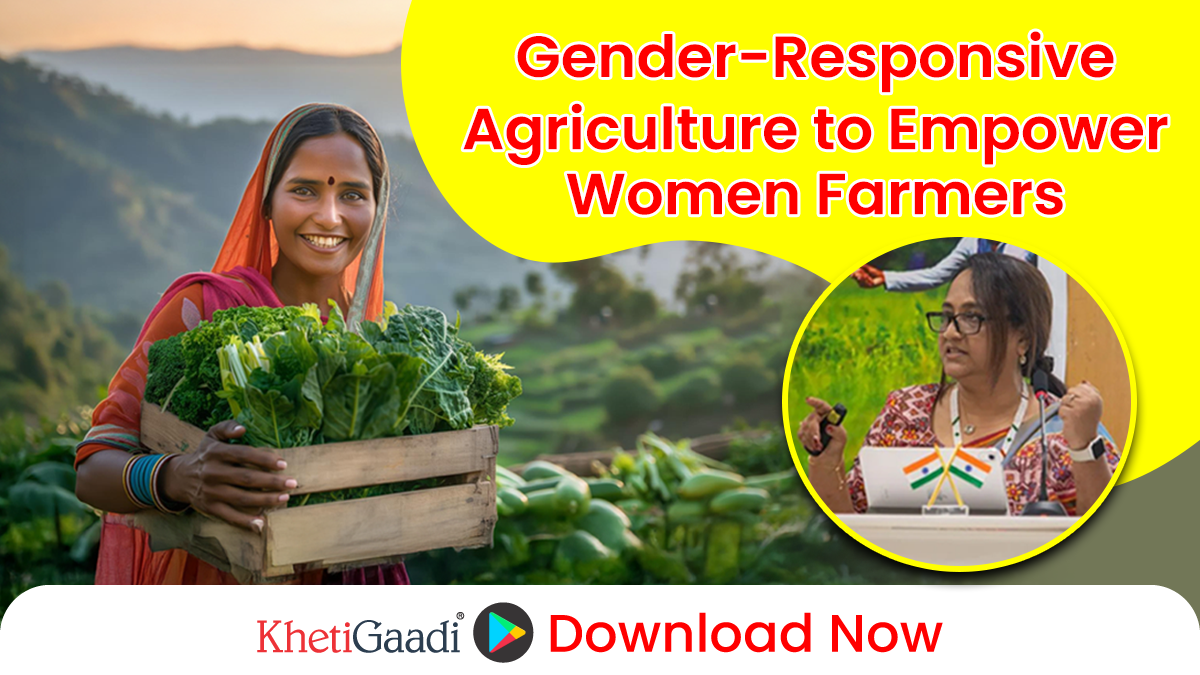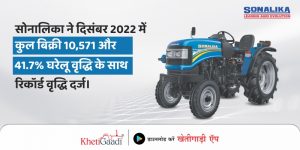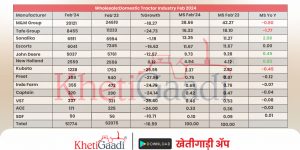Global Experts and Policymakers Aim to Empower Women Farmers by Addressing Access Gaps in Agriculture
In Hyderabad, agricultural experts, policymakers, and leaders from agri-food systems gathered for an international workshop focused on making agricultural extension and advisory services (EAS) more gender-responsive. The three-day event, organized by the CGIAR’s GENDER Impact Platform through the International Rice Research Institute (IRRI) and the National Institute of Agricultural Extension Management (MANAGE), aimed to bridge critical gaps that limit women farmers’ access to essential agricultural resources, knowledge, and technologies.
KhetiGaadi always provides right tractor information
Women’s Access to Agricultural Support
With global food insecurity and climate change posing increasing challenges, the workshop highlighted the unique struggles that women face in agriculture. Women make substantial contributions to the agri-food system, whether as producers, farm managers, or entrepreneurs, yet they remain largely underserved by agricultural extension services. These services, designed to provide farmers with knowledge and training to enhance productivity, often do not reach women effectively due to societal barriers and limited resources.
Dr. Saravanan Raj, Director of Agricultural Extension at MANAGE, emphasized the importance of empowering local extension professionals and fostering gender-responsive approaches. “We need to empower grassroots extension professionals and ensure that the knowledge they share is inclusive and accessible to all, especially women farmers,” Dr. Raj stated during the workshop’s opening session.
If you wish to know organic methods to increase your overall cultivation yield, please call KhetiGaadi counsellor on 07875114466 or check all information on the KhetiGaadi App.
Systemic Barriers to Empower Women Farmers
Speakers and participants underscored that simply providing access to EAS is not enough. Women farmers face challenges such as restricted land ownership, limited mobility, and lack of access to digital tools. Dr Ranjitha Puskur, Evidence Module Lead at the CGIAR GENDER Impact Platform and Principal Scientist in Gender and Livelihoods at IRRI, stressed the importance of tackling root causes. “We know that women lack adequate access to extension services, but to make lasting change, we need to move beyond the symptoms and address underlying issues.”
The workshop identified the need for tailored solutions to overcome these challenges, recognizing that women’s roles in agriculture vary across regions. Women constitute 66% of agricultural employment in sub-Saharan Africa and 71% in Southern Asia, highlighting the urgent need for gender-responsive policies and practices in these areas.
Innovations in Digital Extension Services and Gender-Responsive Tools
A significant part of the discussion revolved around innovative technologies that could help close the gender gap in agricultural support. Participants from both the public and private sectors shared strategies for utilizing digital platforms to make EAS more inclusive. A participant from Bayer introduced a recently launched WhatsApp chatbot that provides video and graphic-based advisory services to over 4,000 farmers. The use of Artificial Intelligence (AI) in such digital tools has the potential to bridge knowledge gaps, enabling farmers to receive timely guidance and support.
The workshop also spotlighted farmer-to-farmer learning and digital farmer field schools, which continue to be effective platforms for knowledge sharing. These platforms have proven especially valuable for women farmers, offering them a more accessible way to connect and learn despite mobility and time constraints.
Calls for Policy and Practice Reforms
The workshop underscored the need for intentional policies to support women farmers. In his remarks, ICRISAT Interim Director General Dr. Stanford Blade highlighted the need for dedicated efforts across all levels of the agricultural sector. “As we look towards the future of agriculture, it’s essential that our policies and practices actively support women farmers and agricultural entrepreneurs who are transformative forces in the sector,” he said.
Dr. Blade’s remarks resonated with many participants, who emphasized that a holistic approach is necessary to ensure that women are not only included but empowered within the global agri-food system. The workshop’s outcome is expected to drive new initiatives, collaborations, and strategies to support gender equity in agricultural extension services.
Stay tuned with us on our WhatsApp channel for more real-time updates on various agriculture-related schemes and innovative cultivation methods aimed at supporting our hardworking farmers.
For more detailed information, visit https://khetigaadi.com/ regularly!
To know more about tractor price contact to our executive






